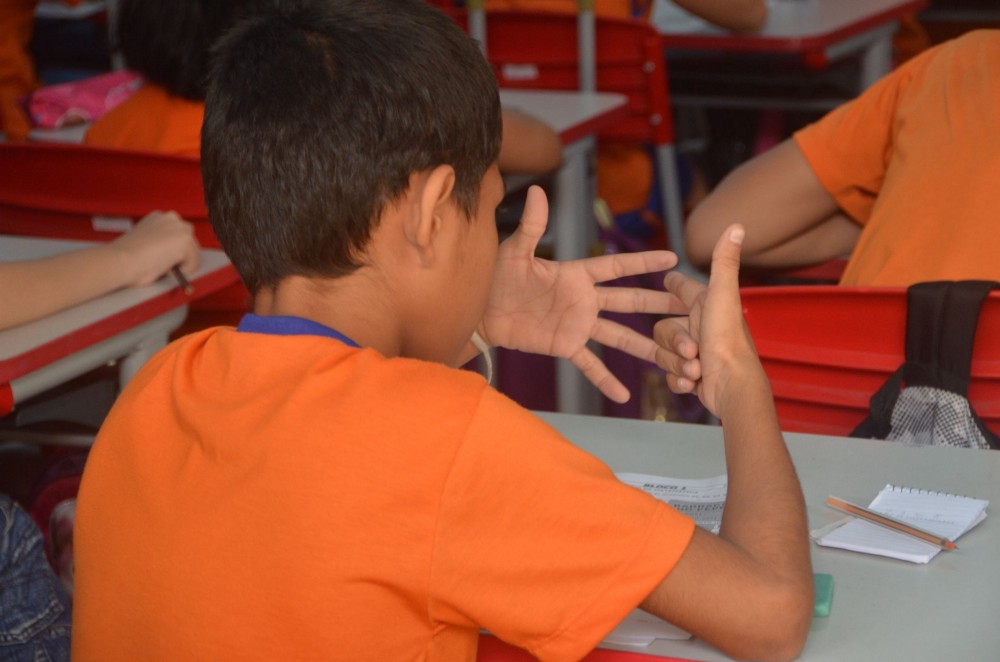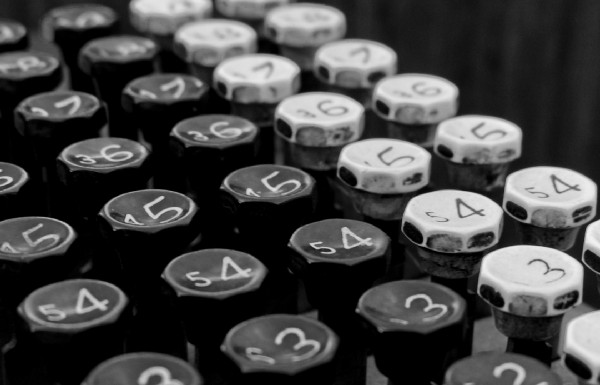If you are unique (and aren’t we all), numbers are not our friends
Figure 1: Counting By Bhakti Ziek. — provided by the author, CC BY-SA 4.0
Humans have been counting since before recorded history. Apparently, even some animals use rudimentary counting. With the ascendance of “Big Data” and the proliferation of connected internet-of-things sensors and monitors we are automatically counting more and more aspects of our life. This leads to more, and larger numbers.
Figure 2: The early skill of finger counting.
Generally, whether we are measuring potential profit, impact, popularity, and even truth; the bigger the number the better. Businesses want to reach the largest customer base, governments want to invest in measures that benefit the largest number of voters, and if you are vying for attention you want the largest number of likes. Our expectations regarding the size of the number keeps rising.
Counting even determines such fundamental qualities as truth and worth. If you assert that something is true, as a scholar or researcher, you want the largest number of consistent measures; and to qualify as evidence, it must be measurable. Generally, only that which can be counted is attributed worth or value, and the higher the number, the better.
Who counts?
What happens if you are a small number? If the value you create is not quantifiable? If what you want or need to write or talk about is not popular? If the government program that is essential to you does not benefit many other people? If the products and services you depend on only have a tiny market? You will likely discover that you do not count or you do not measure up.
Your efforts won’t be valued. Think of the innumerable caregivers and their essential roles and how they are remunerated.
The things you say or write will receive little attention. Who pays attention to the painful indignities of dying from a rare incurable illness?
The programs you depend upon will be de-funded. Ask the many people who experience “low-incidence” disabilities whose critical services are at the mercy of political whims.
The products and services you need will be hard to find and if you find them they will cost more and be less reliable. Have you ever gone shopping for information or services in small minority languages?
Because you are an anomaly, security systems will perceive you as a threat. Try going through airport security with a declared gender that doesn’t match your physical parts.
Because the numbers don’t represent you, you won’t be understood, and you won’t be recognized. Search for research, publications, government grants or courses that address the unique needs of small, rural, remote communities.
You may find yourself in a vicious cycle of exponential injustice. Because you don’t count for very much, you can’t participate, because you can’t participate, you can’t help define what counts, so you don’t count.
The Divisiveness of Digits
Most of our counting requires sameness and conformity. Deviation discounts you. You may find that even groups that fight for justice disqualify you. Advocacy groups fight for representation of an identity group with a well-defined and defended set of common characteristics. What if no one can represent your unique needs and characteristics? What if no one claims you as a counting member? What if you exist at the dividing line between defined identities? Even our existing instruments of justice rely on being measured and counted. It’s hard to measure equivalence when we have unbounded diversity.
Figure 3: Old adding machine keys
Dividing Lines and Totals
Counting also demands clear boundaries. Something fuzzy and indeterminate is hard to count. Enumerating things like the characteristics of human variability has no endpoint or closure. Possible relationships and imaginable futures have no total. Complexity is impervious to counting. The cyclical has no sum.
Human Equations
We ignore the small numbers, the uncountable, immeasurable, unbounded at our peril. It’s the rare, small numbers that have the largest, disruptive heft. Weak signals are usually the only warning signals we have of life changing events. Not very many people populate the extreme edges or margins, but that is where true innovation can be found.
If we can’t escape the seduction of large numbers, it should be noted that adding up all those small and diverse numbers that are discounted, collectively comes to the biggest sum.
Unless we include those small, heterogeneous and frequently immeasurable numbers we have a distorted truth, our evidence is incomplete, and our blind spots occlude the most critical bits. If it takes large homogeneous numbers for us to pay attention, assign worth, and acknowledge truth we are setting ourselves up for an impoverished and inhumane life. Difference and unbounded variability is a human reality, anything living is not made to be a digit.
I’ll trade you any big homogeneous number for the immeasurable, the ineffable, and the invaluable.


